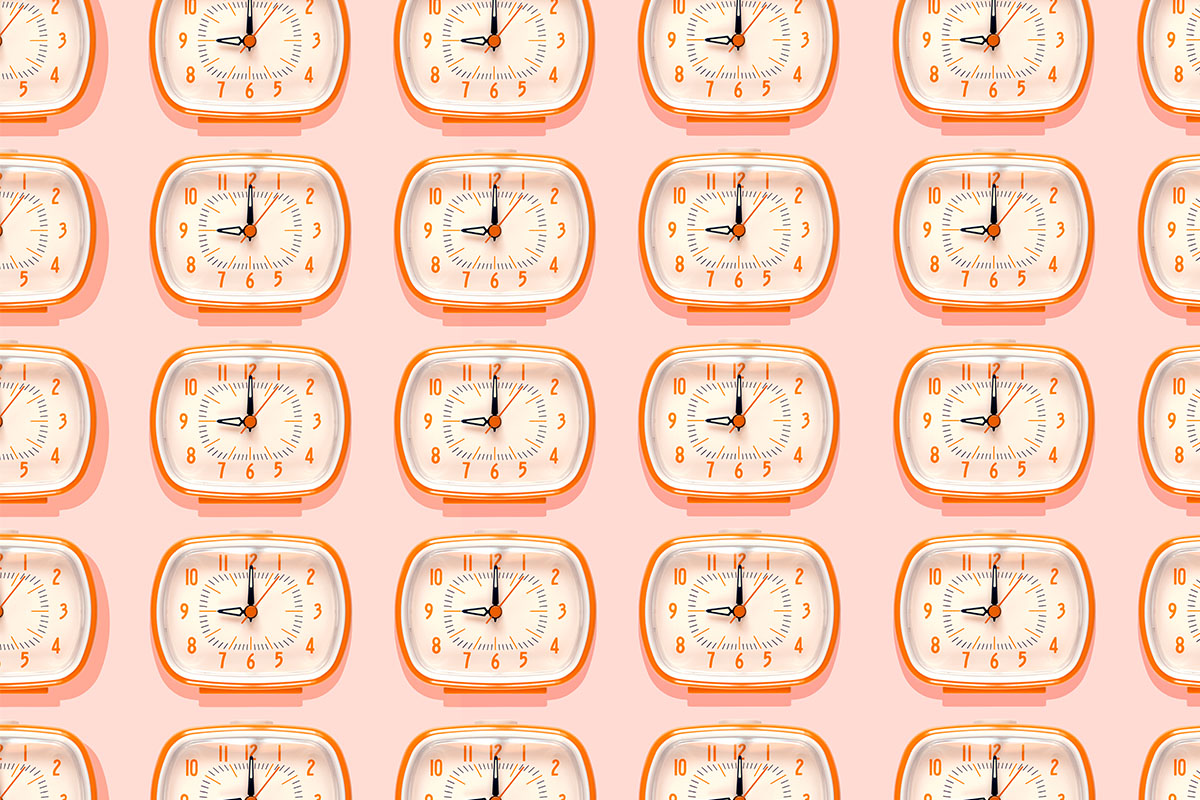I showed up to Heathrow a month ago, ready to catch a flight home to Newark after a week in London, and ran into COVID chaos. Airport staff was operating at 33% capacity, security lines were up to three hours long and hundreds of flights had been canceled, mine among them. I was put up in a hotel and advised to return back as early as possible the next day to secure a seat on a flight.
I got up around five in the morning (GMT+1), found passage thanks to an empathetic clerk and landed in New Jersey that evening. I went to bed immediately after dinner; it had been an incomprehensibly long 48 hours. The next day, even after a fulfilling sleep, I woke up before six. I felt oddly fresh, and went for a four-mile run. I woke up early the next day — well before my 8 a.m. alarm — and again tied my laces bright and early. This pattern has since continued for weeks.
It might not sound like much, but for those who know me, this is a seismic change in day-to-day behavior. I’m a night owl by trade. For years, I’ve worked, watched and scrolled late into the evening, wrapping up my days after around one in the morning. When do I typically get up? Not around six, I can tell you that.
And yet, that London trip appears to have jailbroken me. It’s a win (however temporary) over genetics that can can often feel deterministic. Consider: there’s a biological framework for why some people are better at getting out of bed than others. A study published in JAMA Psychiatry earlier this year exhibited that “sleep timing” and “diurnal preference” are genetically ingrained traits. Sleep researchers call it “the master clock.”
We each have a “bundle of neurons” in our brains that advise the body on when it’s sleepy, when it’s hungry and when it should probably get outside for some sunlight. These clocks were far less distinct hundreds of years ago — moody adolescents weren’t staying up texting friends until 2 a.m. during the Middle Ages — because everyone more or less followed the schedule. In eras and areas with electricity, though, variance in sleep-wake cycles has followed.
I have no desire to participate in the arms race of people online (usually men, and usually famous executives or actors), bragging about how early they get up. Rolling out of bed at 4 a.m. sounds torturous and unnecessary. But I’ll admit that waking up earlier has made me a happier, more productive person, giving me the semblance of a “head start” on each day.
The science backs this up: night owls tend to eat or drink more and binge on screen-time just before bed, while early birds are more likely to exercise each day and be more alert in the workplace. Some research has even demonstrated that morning people live longer.
Ultimately, you shouldn’t have to fly to London (and then go through a travel day from hell on your way back) in order to earn early bird status. That’s an incredibly inefficient, expensive solution; I’ll own that. But in implementing a few common-sense changes, and then sticking to them religiously, it’s possible to shift your mornings and evenings back.
Think about the inputs that you can actually control. When are you eating your last meal? Do you bring your phone to bed? Could your room be darker (or cooler)? On Friday or Saturday night, do you suddenly go to bed three hours later than usual? Try to optimize these inputs, then select a goal wake-up time. Stick to it every single day, no matter what. What worked for me in retaining that time was immediately turning to exercise and sunlight each morning, in order to make the start of the day feel non-negotiable.
It’s possible, obviously, that you’ll start to crash right after lunchtime. The key is in sliding that bedtime back, commensurate with your new wake-up time. If you want to be a 6 a.m. guy, you can’t remain a 1 a.m. guy. You’d just be a zombie guy.
The Charge will help you move better, think clearer and stay in the game longer. Subscribe to our wellness newsletter today.

















